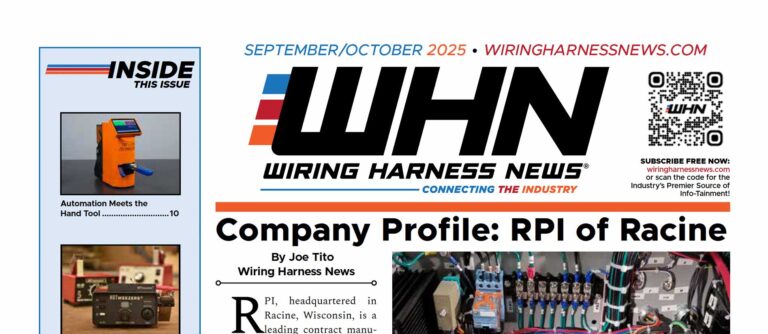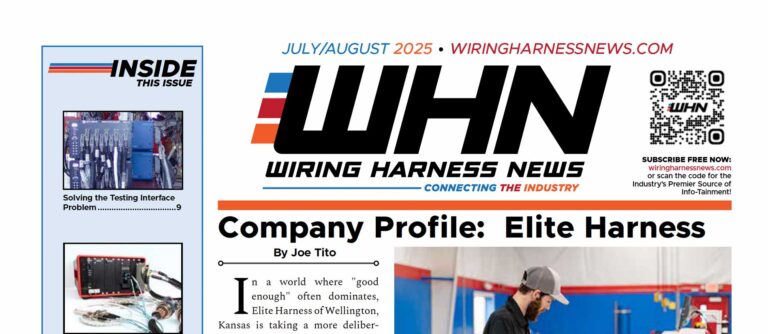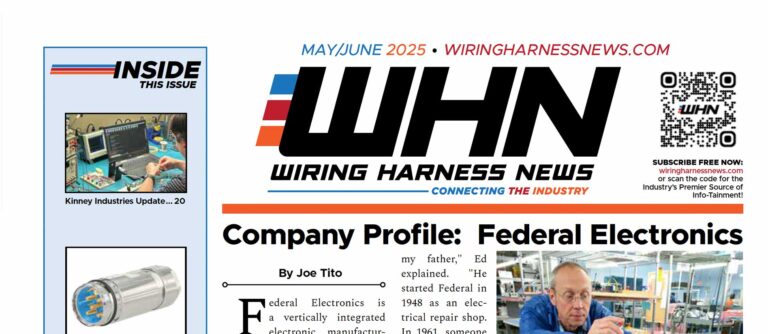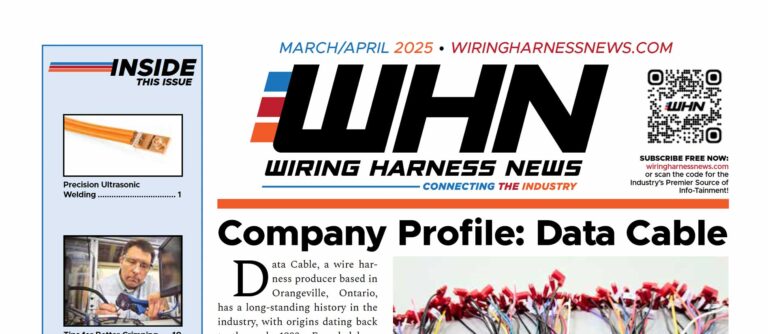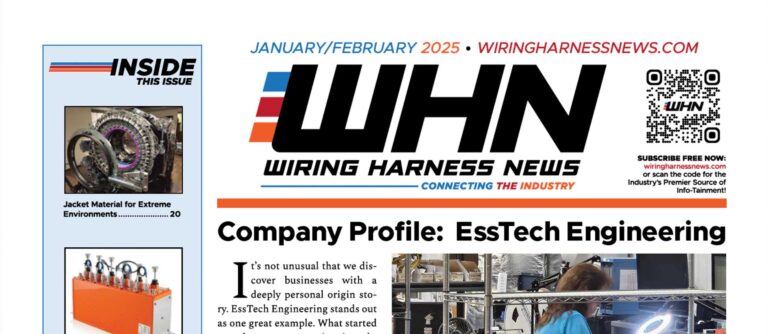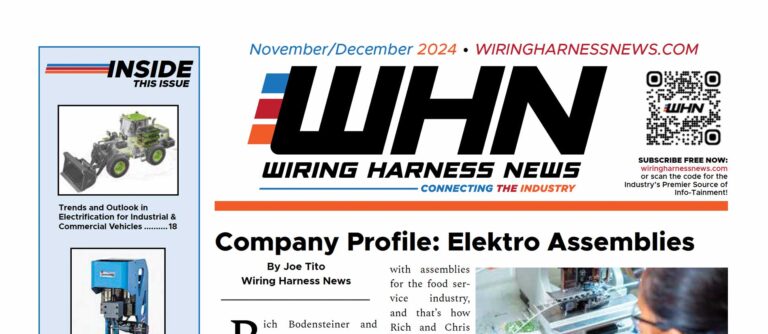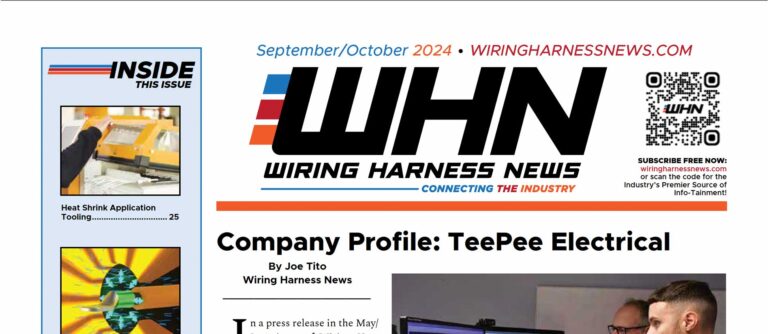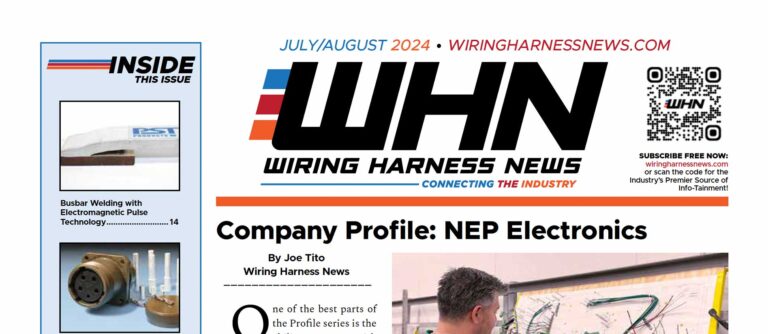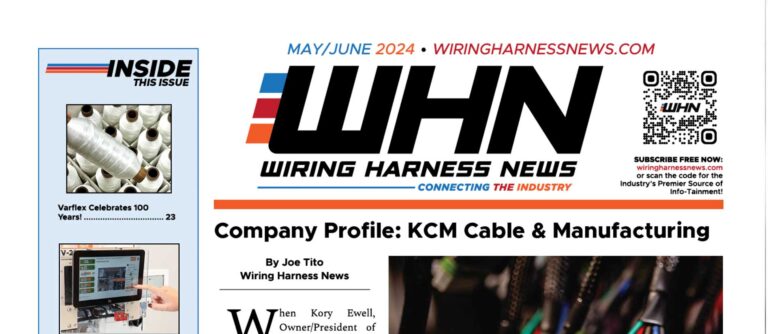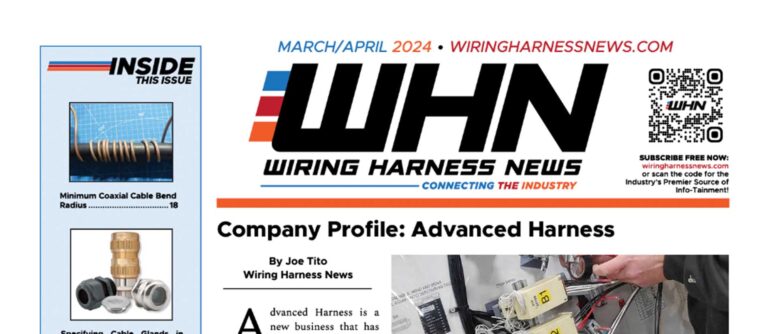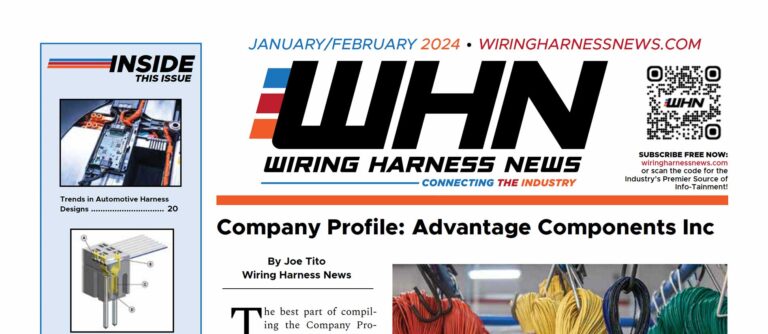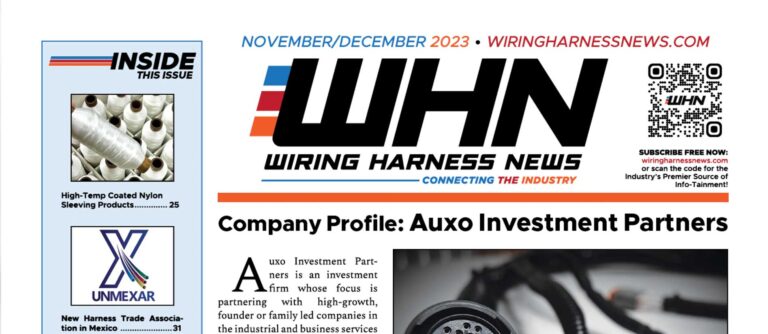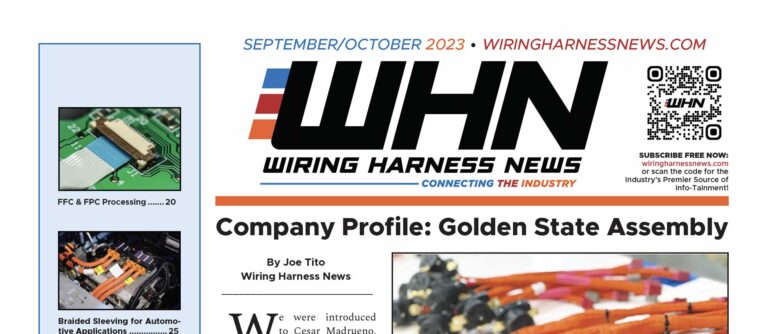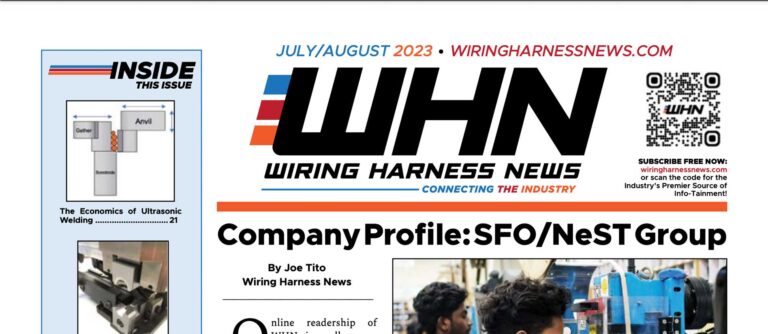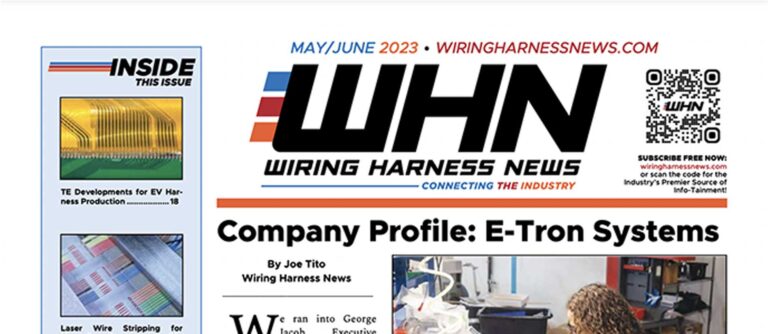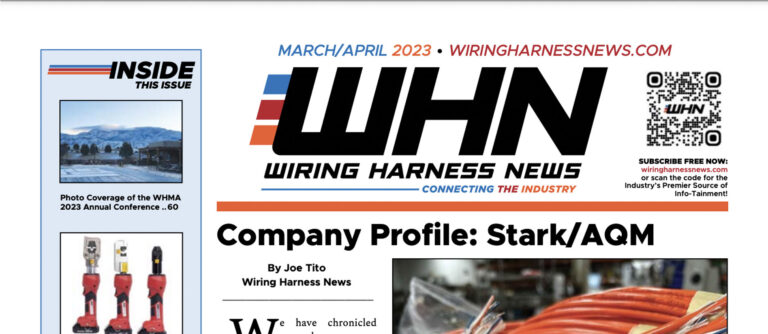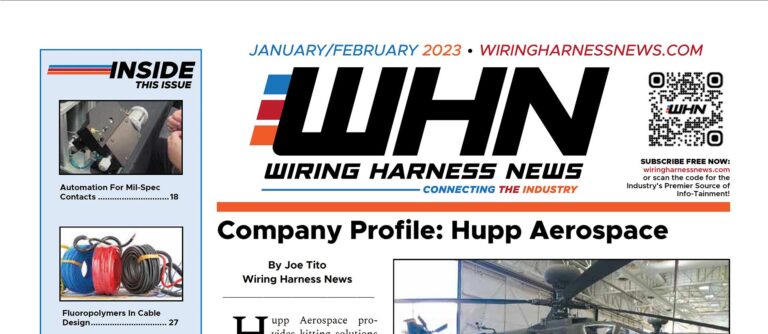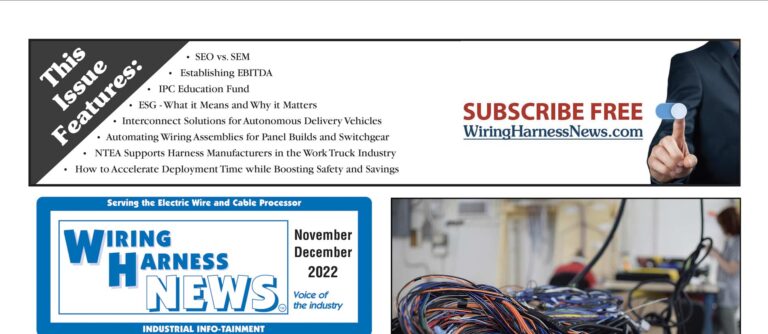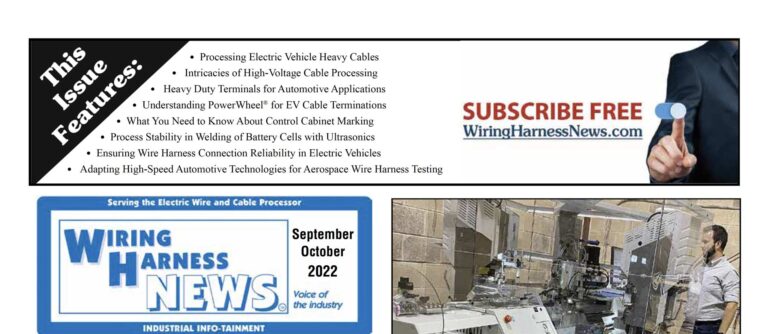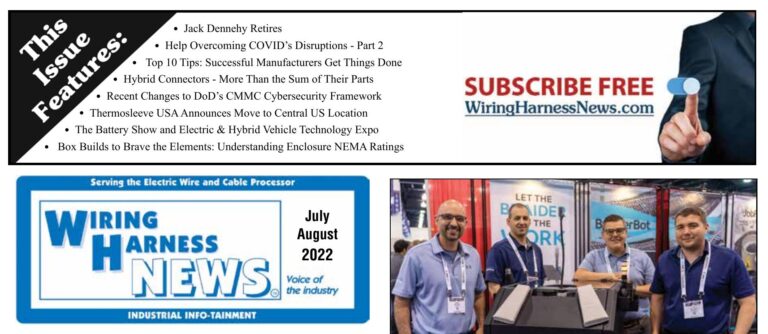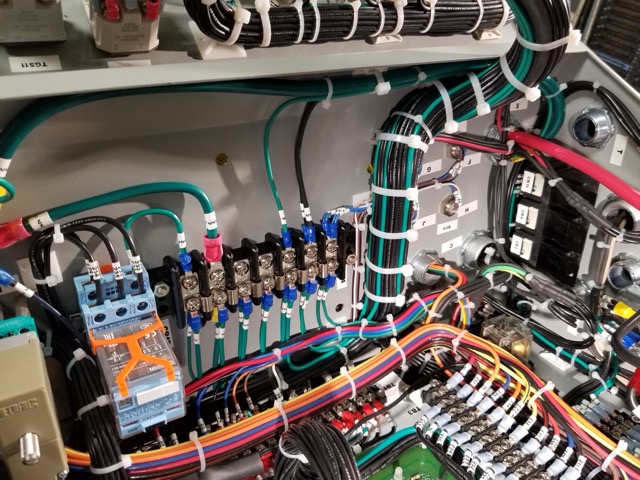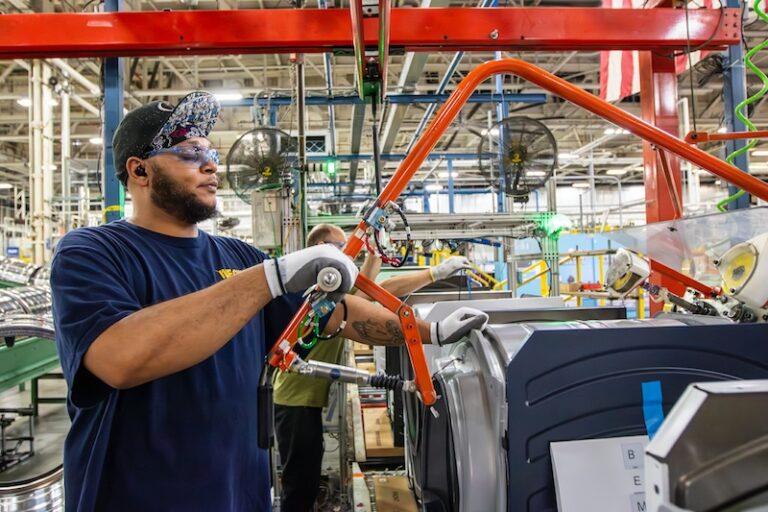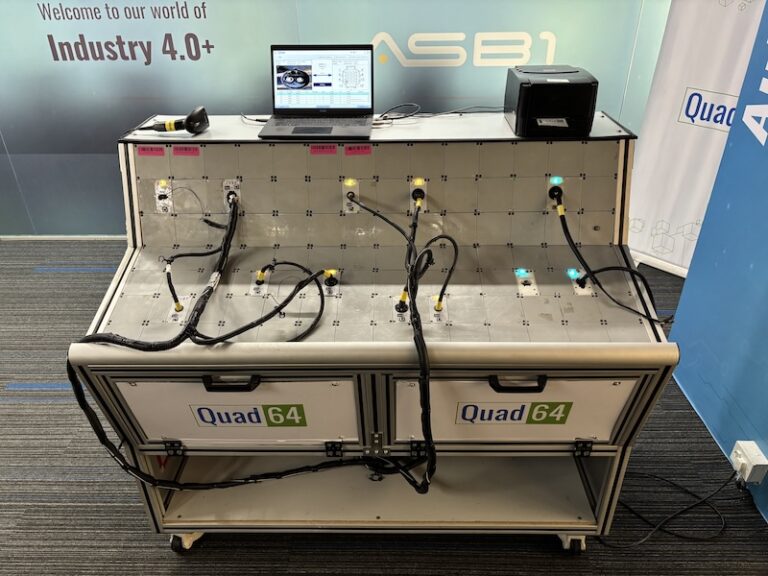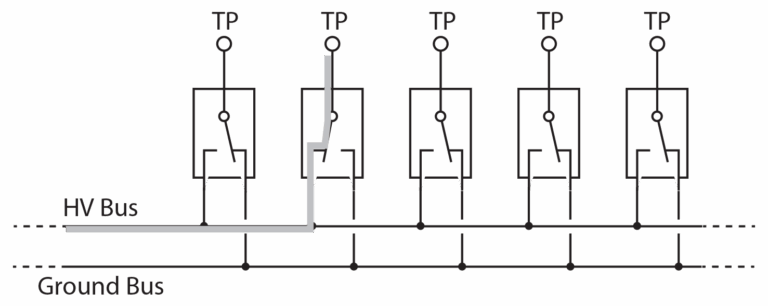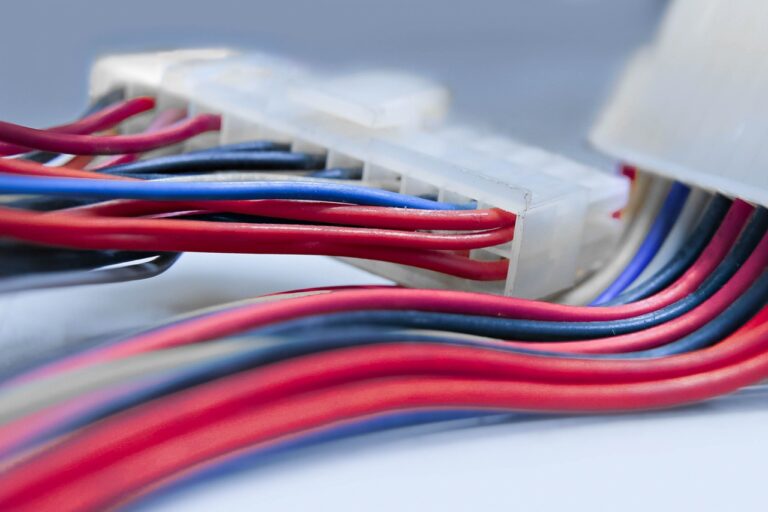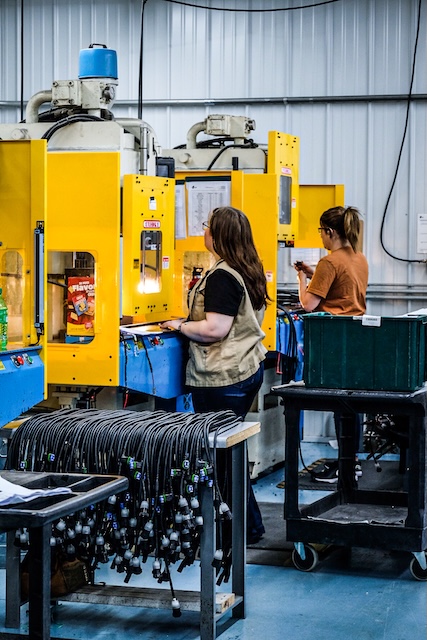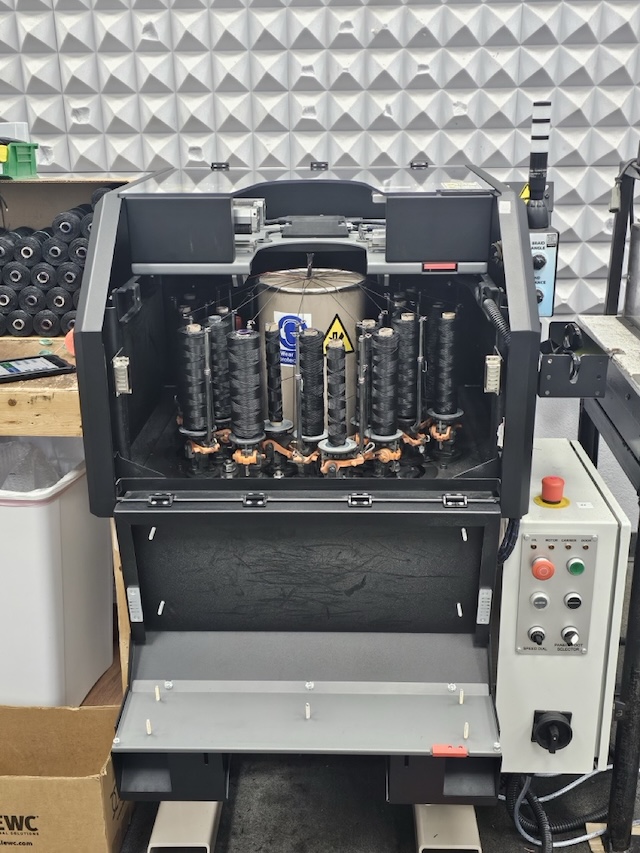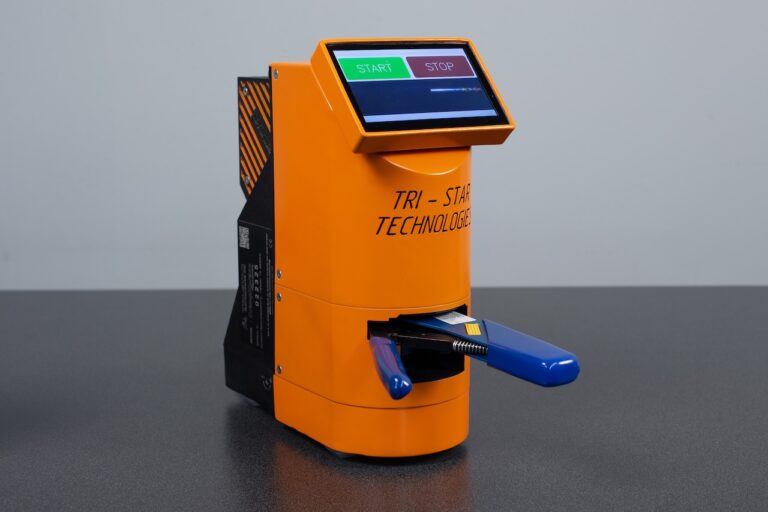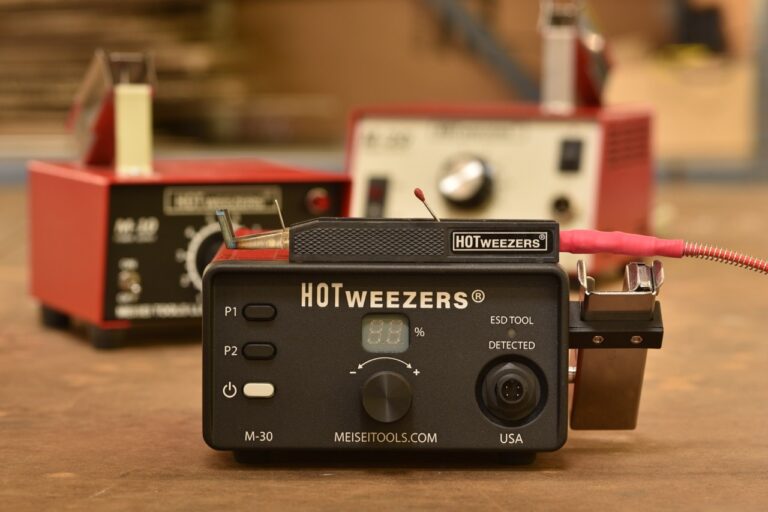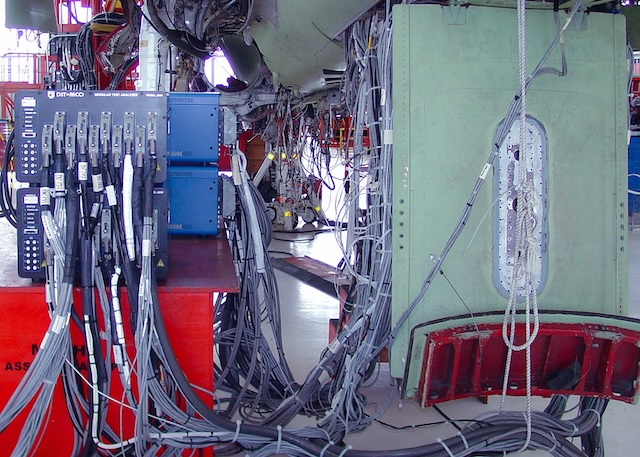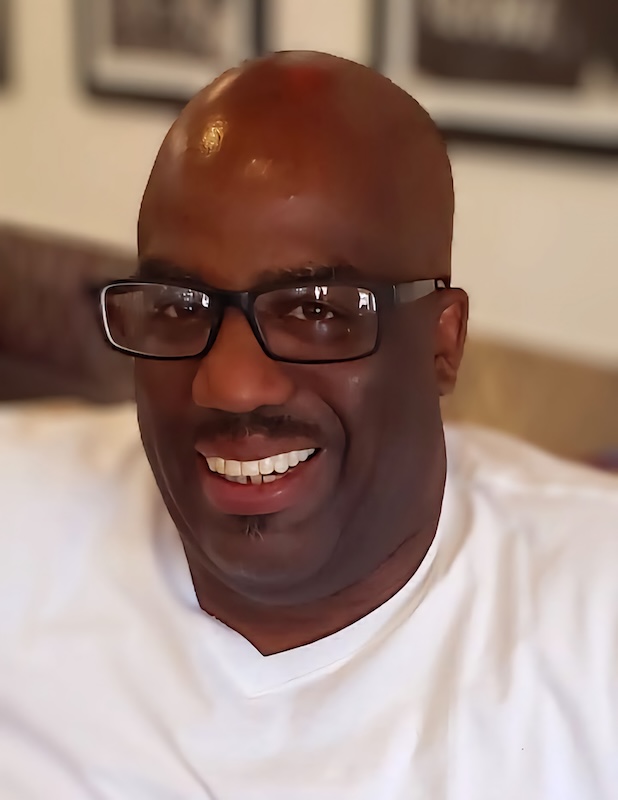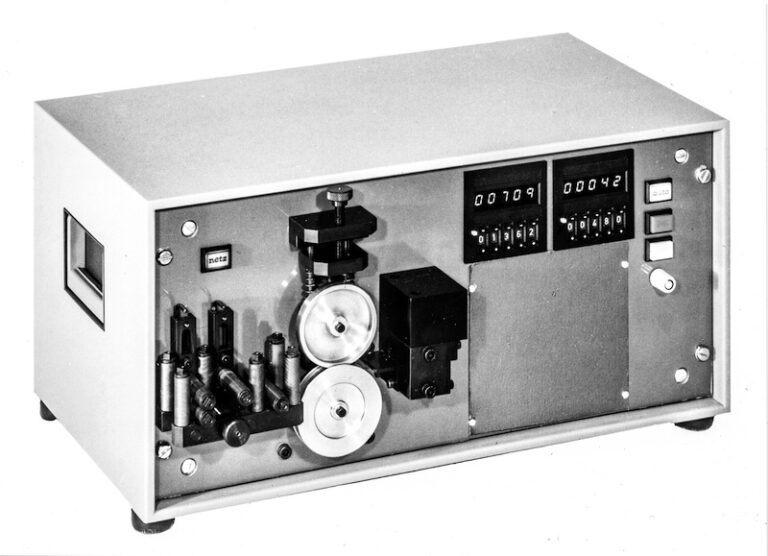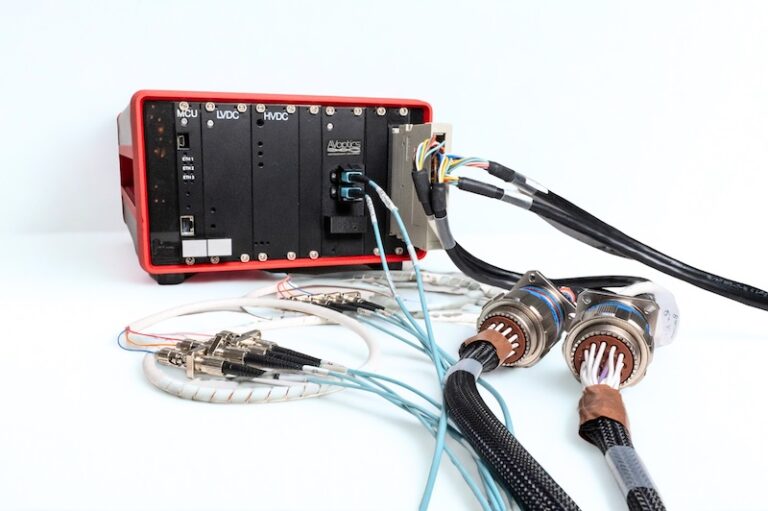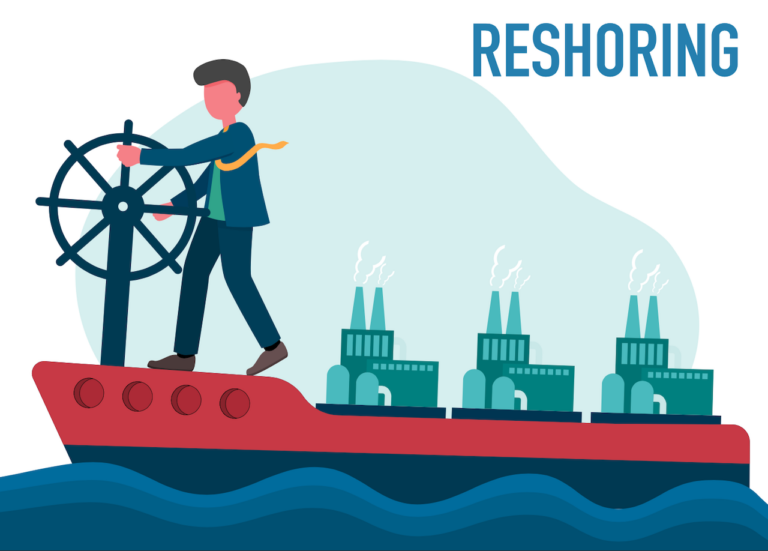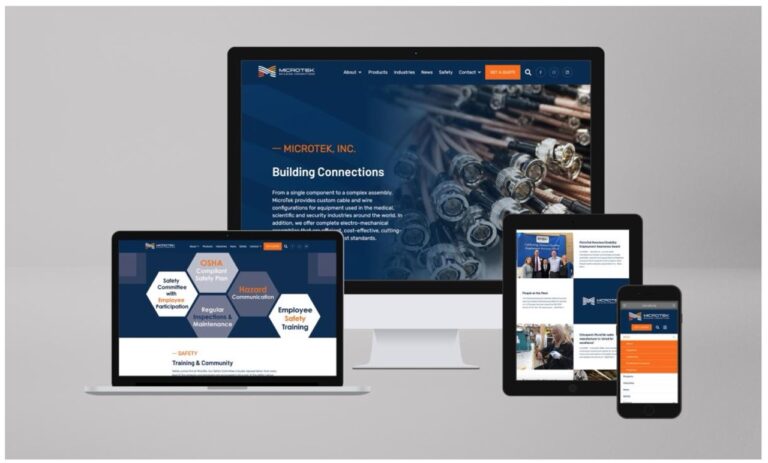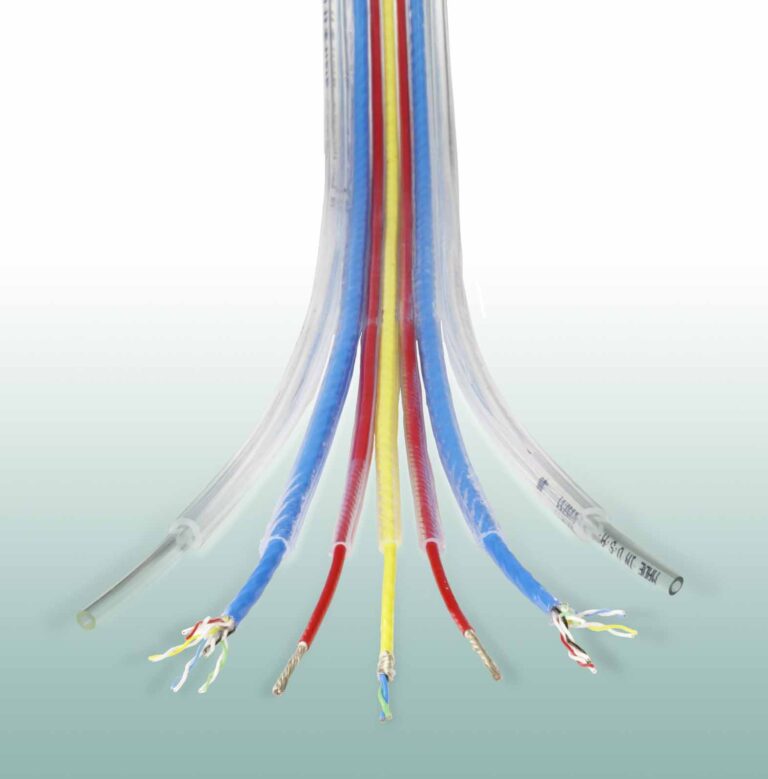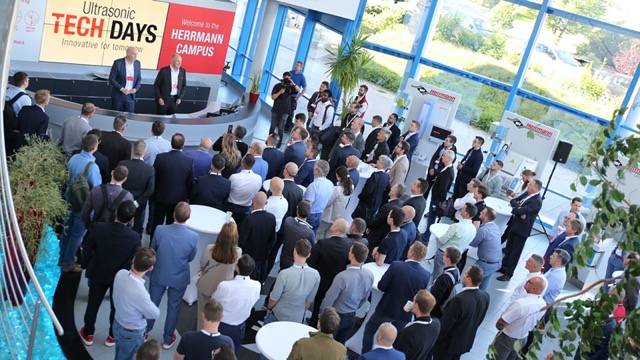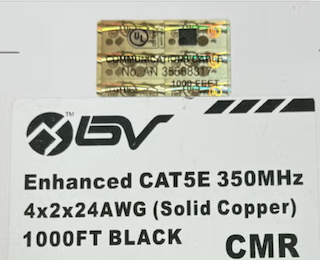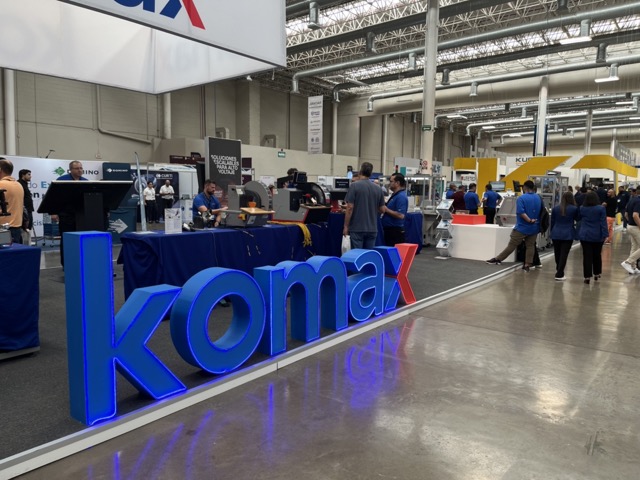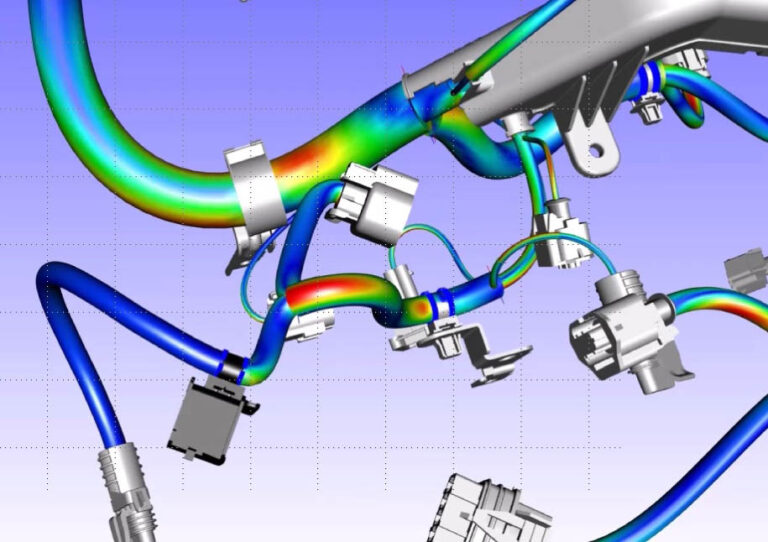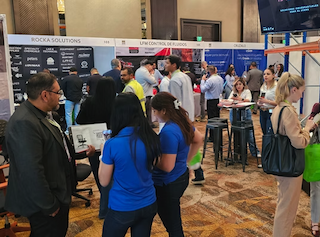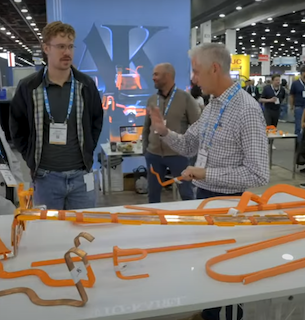RPI, headquartered in Racine, Wisconsin, is a leading contract manufacturer and industrial equipment designer and supplier serving the automotive, railway, marine, energy, and utility industries. The company’s broad capabilities include electronics contract manufacturing, PCB design and assembly (including firmware), wire and cable harness manufacturing and maintenance, custom mechanical enclosures, and full machine shop support. They also specialize in automated testing solutions—primarily for the automotive industry—and have developed proprietary products such as AirSwitch™ technology, an air-actuated high-current switch for production equipment, along with their PMC workstation products.
Beyond that, RPI offers prototyping services, value-added engineering, and excels in high-mix, low-to-medium volume environments. Their teams have particular expertise in ruggedized, high-power cabling and enclosures, and their Test Automation group develops everything from bed-of-nails fixtures to high-voltage switch racks for demanding applications like EV battery testing.
But these labels barely scratch the surface. RPI is, in the words of President Matt Zeilhofer, a “43-year-old restartup.”
“RPI was started by Roger and Linda Perry, a husband-wife team,” Matt shared. “Roger came out of the Navy and jumped into electronics. He didn’t have a college degree, but he was an extremely intelligent man.”
Roger began by working with a company based on the East Coast that wanted to expand to the Midwest. When the company reversed course, Roger decided to stay. “They granted him the right to continue doing that work here, and that’s how RPI began,” Matt said. “He started working with automotive customers right away – Delphi, and others here in Wisconsin.”
From the start, RPI had a strong foothold in the automotive component testing sector. As Matt described it, “We continue to work with major automotive customers – BorgWarner, Vitesco, Schaeffler, Aptiv, Bosch, – and others like SAF Holland and BWI.”
Roger’s legacy includes three patents for testing equipment, which continue to be central to RPI’s value proposition. “We make a lot of large test equipment, quarter million to half million-dollar pieces, that can test everything from keyless fob entry systems to high-power EV batteries for buses,” Matt explained. “We use air pressure to do the switching (AirSwitch), so there’s no EM interference. That gives us perfect test results every time.”
RPI’s ability to work in the high-voltage space has been increasingly valuable. “As EVs moved into the marketplace, our technology could handle the high voltage and the interference that most others would struggle with,” Matt noted.
After adding a full machine shop and expanding their Racine facility in the mid-2000s, the company was really forging ahead. But the 2008 financial crisis changed all of that. “At that point, the automotive market really tanked. We lost about 90% of our revenue,” Matt said. The company went into a holding pattern, maintaining operations but with minimal growth.
Roger passed away just over three years ago. His grandson, Jason Perry, and business partner Tyler Marks acquired the company and brought it under the umbrella of Facility Gateway Corporation (FGC), their Madison-based firm that focuses on data center infrastructure and commercial real estate.
“Jason was running RPI from Madison, but after a year they brought me on board,” said Matt. That was two years ago. “We went to work upgrading the facility – new roof, new HVAC, new equipment. We invested heavily.”
The results have been dramatic. “We doubled our revenue from ’22 to ’23, and doubled again from ’23 to ’24,” Matt said. “We’ll be flat or slightly up this year, but that’s mostly because our automotive product sales are way down.
But RPI hasn’t waited for automotive to bounce back. “We added different and new customer bases – heavy industry, locomotive, energy. ABB is now a big customer. So are Eaton, Harley-Davidson, Twin Disc, and Milwaukee Tool.” Three years ago, automotive accounted for 75-80% of revenue. Today, it’s less than 25%.
Matt described RPI’s evolution from a job shop to a vertically integrated manufacturer. “We have a full machine shop. We have two lines for PCBA – a through-hole line and a press-fit line. We also have two pick-and-place surface mount lines.”
And wire harnesses? “They’re our largest standalone business,” Matt explained. “Probably 60-65% of our revenue will be wire harness or harness-related this year.”
In just three years, RPI has added 30 new customers while retaining all 12 of their core customers going back over 25 years. They’ve expanded from a regional to a global company, shipping to 39 U.S. states and 17 countries including India, China, Canada, and several across Europe.
Matt gave a more detailed walkthrough of their test fixtures. “We make one that simulates a rollover by lifting, flipping, and resetting the board. That way when something like OnStar triggers, we know the board is good.”
They also make test fixtures for Badger Meter, Illinois Tool Works, and even for testing EV battery packs. “Some test racks are the size of a refrigerator. One we built could test 256 key fobs at once. Others test drive trains on Ford trucks. In the EV space, we can test up to 800 volts for buses.”
Wire harnesses have been integral from the beginning, a foundation that helped RPI establish itself in automotive testing. “Our large test fixtures use thousands of wires. Some of our AirSwitch harnesses have 128 Teflon wires with EDAC connectors. These are $1,200 to $2,500 harnesses. We also refurbish them for about 10% of the cost of a new one.”
And harness work is not limited to testing. “We make harnesses for SAF Holland’s over-the-road vehicles. We make thousands for Knox Kershaw and Nordco in the rail sector. Some are 100 feet long.”
A culture of quality is key at RPI. “We live the ISO 9001 standard. It’s ingrained in who we are. We’re IPC certified. We track every lot, every bin—who made it, how long it took, etc. Everything is serialized and scanned in and out.”
Facility Keys, their proprietary ERP system, helps. “When someone logs into a terminal, it tells them what they’re working on, along with full work instructions and photos. If they have questions, the lead is right there.” The system has really been transformative. “We monitor with good data. Our efficiency has doubled. It used to be you needed someone with tribal knowledge. Now it’s all documented and easily accessed.”
Training is ongoing. “We train every Tuesday morning. Every month we do a half or full-day training. Four times a year we bring in IPC trainers for 620 or 610 certifications.”
Collaboration is a competitive edge. “We talk to every customer quarterly. We assign engineers to accounts. They get one or two points of contact and full transparency. We open SharePoints for large customers. They can see Gantt charts, order statuses—everything they need in real time.”
Engineering drives the process. “We have EEs, MEs, and PCB designers. Every quote is reviewed by an engineer, not just a salesperson. We do a lot of design-for-manufacturing and design-for-improvement.”
Thorough testing is a way of life at RPI. Matt put it simply: “If we make a harness for you, we make a test fixture for it in-house. Every harness is 100% tested, and you get a test report with your shipment.”
Capital expenditures in equipment and automation have been extensive. “upgraded CNCs, ultrasonic welder, two more testers have recently been added. We now we have 7 Cablescan units. There are tablets and laptops on every line and 32 terminals throughout the facility. You’re never more than three steps from a terminal.”
Internships are building the next generation workforce at RPI. “We had three student interns this summer. One we hired on part-time. She’s a track star and may break one or multiple Wisconsin sprinting records this year. Another intern already runs his own landscaping business at 16.”
Matt was clearly proud of the internship program and the candidates they have chosen for it. “I can’t say enough good things about these kids. They were some of our best employees. They showed up on time and they worked hard.”
He sees the engagement with local schools as essential. “We work with Gateway Technical College, MATC and UW Milwaukee. We hire engineers from the internship pool. We also work closely with the Racine School District.”
When asked what sets RPI apart, Matt didn’t hesitate. “Collaboration and speed. When you send an RFQ, we respond right away. We assign an engineer. Within a week, you get a quote. Lead time is usually four to six weeks. We hit that 97-98% of the time.”
He acknowledged that speed comes with stress, but said, “I don’t know why more competitors don’t move faster. Maybe we’ll have to slow down as we grow, but for now, we’re moving.”
Matt’s passion for the industry was clear. “Most people don’t realize what wire harnesses do. They think it’s just wires. But it’s what makes everything work. If the harness fails, your product fails.”
He concluded, “I came from the battery and electronics industries. This is different. Wire harness people are high-integrity, collaborative and helpful. It’s not cutthroat. It’s just a really impressive group of people.”
Following the interview, Matt provided several documents that further illustrate RPI’s capabilities and innovations.
Their PCB services include surface mount, through-hole, and press-fit assembly, with prototype and DFM support. They specialize in redesigning existing boards for cost reduction, improved reliability, and replacing obsolete components.
RPI’s engineering team supports full product development cycles, offering mechanical design, firmware, and embedded systems integration. Their Test Automation group designs robotics-enabled workstations and high-voltage test chambers with integrated mechanical and PCB solutions.
The ProductivityOne PMC (Powered Mobile Cart) is a standout. This mobile workstation offers portable power, 120V UPS or DC options, and has been shown to boost productivity by 25%, reduce downtime by 25%, and cut labor costs by up to 12%.
Whether building harnesses, reengineering legacy boards, or designing global test systems, RPI of Racine has become a quiet force in contract manufacturing. True to Matt’s words, it really is a ‘43-year-old restartup’—and a hidden gem in the industry.
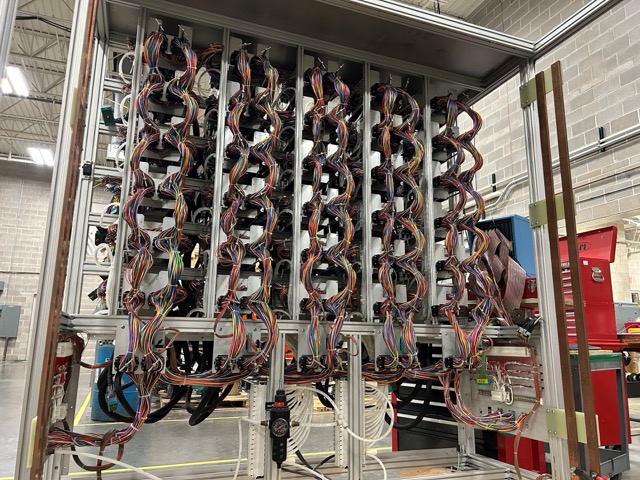
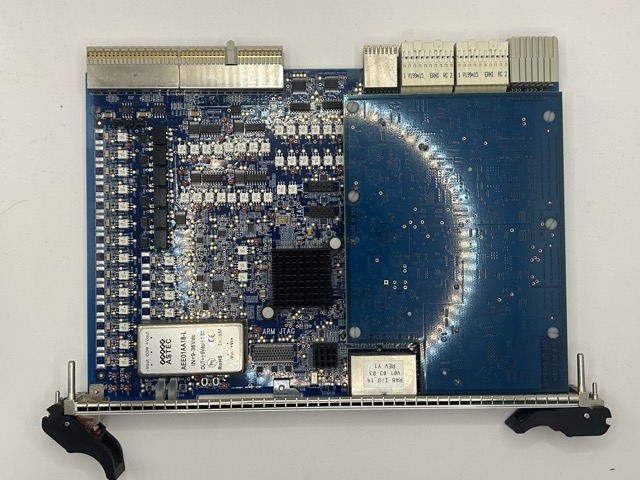
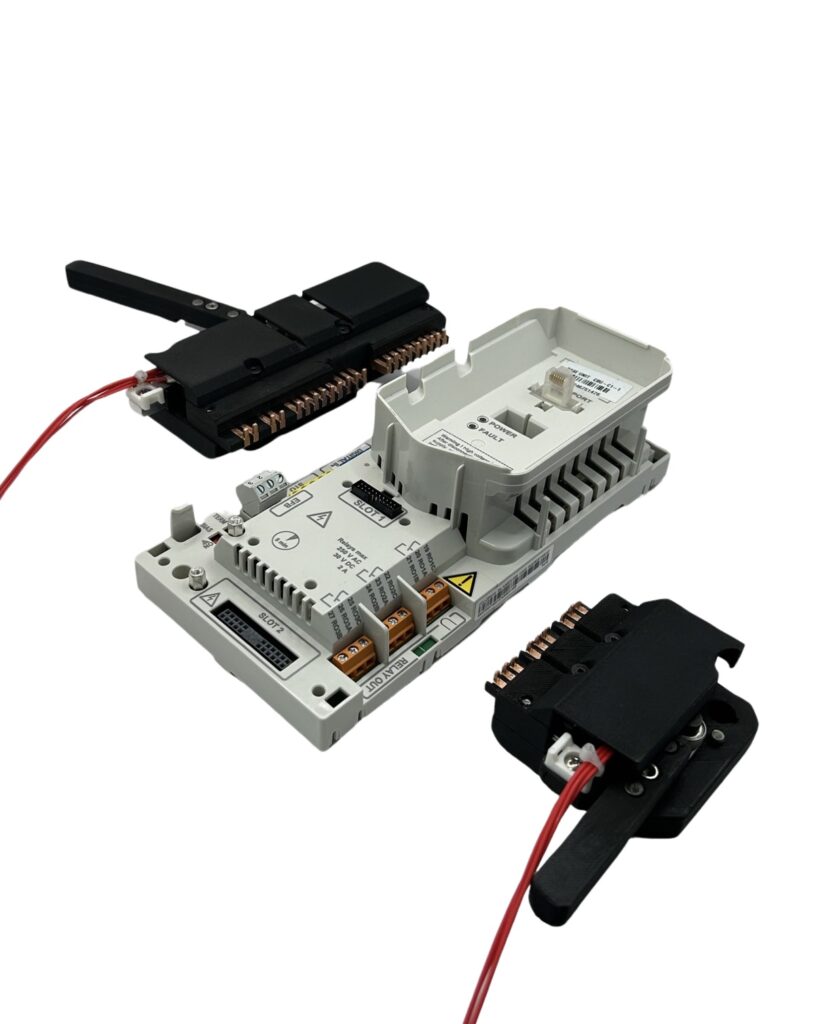
**

